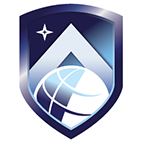Master of Science in Nursing – Informatics
Earn an affordable MSN designed for tech-savvy nurses.
If you love technology as much as you love nursing, choosing Aspen’s MSN program with an Informatics specialization is the perfect path. The field of nursing informatics is rapidly growing. With that growth is an increasing demand for the adoption of electronic information systems and specialists who understand industry-standard tools and software. Your ability to gather and analyze data can directly improve the health of individuals and populations. This program prepares you for a range of employment areas including hospitals, government organizations, health insurance providers, medical vendors, pharmaceutical and biotechnology companies, and consulting firms. The MSN Informatics program equips students with the ability to manage resources; skills to interpret and analyze data; knowledge of information security; data analytics skills; understanding of legal, ethical, and public issues; comprehension of regulations, privacy, security, and fraud issues; and market-relevant knowledge and practical experience.
Aspen MSN Informatics graduates can:
- Solve health care and nursing problems with computers
- Create projects geared toward the graduate’s passion
- Develop computer-based solutions to common nursing issues
- Use data to improve care management
- Impact implementation, optimization, workflow, and patient safety
- Evaluate the effectiveness of clinical and/or management information systems
- Leverage clinical knowledge with data-driven insights
- Manage regulatory compliance
The Master of Science in Nursing program at Aspen University is accredited by the Commission on Collegiate Nursing Education.
Enjoy Flexibility– 12 online courses with program start dates every 2 weeks
Choose Where You Learn– Online courses with a local practicum
Affordable Monthly Payments
Focus on Your Passion– Choose your practicum project
Practicum courses are performed within a clinical practice or academic setting allowing students to apply concepts under the direct supervision of a Preceptor. Aspen’s Office of Field Experience offers additional support for MSN students during the practicum process.
Aspen also offers online RN to MSN programs for nurses without a BSN degree.
Why More Nurses Are Choosing Aspen


MSN Informatics Courses
Aspen’s MSN curriculum features 12 courses designed to equip you with advanced nursing skills. Taught by experienced nurse educators from diverse healthcare settings, you’ll have the opportunity to apply new knowledge directly to your practice through the integration of your MSN practicum project.
View the course schedule for this program: MSN Informatics Degree Plan
-
N502 - Health Care Systems
-
N537 - Health Care Informatics
-
N512 - Diverse Populations & Health Care
-
N520 - Legal and Ethical Issues in Health Care
-
N542 - Health Care Finance and Economics
-
CIS515 - Management of Information Systems
-
CIS525 - Information Systems Strategic Planning
-
CIS605 - Customers, Markets, and Technology
-
N538 - Advanced Health Care Informatics
-
N508 - Theory and Research
-
N586IN - Informatics Nursing Practicum
-
N599 - Nursing Capstone
This graduate-level course introduces students to the historical development, structure, operation, and current and future directions of the major components of the American health care delivery system. It reviews the historical evolution of the health care system's features and examines the ways in which health care services are organized and delivered, the influences that affect health care public policy decisions, factors that determine priorities for the allocation of health care resources, and the relationship of health care costs to measurable benefits. The course enables students to assess the role of organized efforts to influence health policy formulation, and the contributions of medical technology, research findings, and societal values on our evolving health care delivery system.
3 CreditsRequired Books
This graduate-level course covers the history of healthcare informatics, current issues, basic informatics concepts, and health information management applications. Health informatics is the intersection of information science, computer science, and health care. It deals with the resources, devices, and methods required to optimize the acquisition, storage, retrieval, and use of information in health care settings. Health informatics tools include not only computers but also clinical guidelines, formal medical terminologies, and information and communication systems. This course focuses on the application of health care informatics from a nursing perspective. Based on the Foundation of Knowledge model, this course demonstrates how nursing and healthcare informatics relate to knowledge acquisition, knowledge processing, knowledge generation, knowledge dissemination, and feedback, all of which build the science of nursing.
3 CreditsRequired Books
This graduate-level course provides an in-depth study of cultural diversity, delineating ethnocultural congruent health-care practices in a pluralistic society. Assessment, planning, and interventions for health promotion and maintenance, illness and disease prevention, health restoration, and health policy are explored. The course examines the meanings of health and illness across ethnocultural groups and communities.
3 CreditsRequired Books
This graduate-level course focuses on the legal and ethical rights, responsibilities, and obligations of the practicing nurse in a changing health environment. It is intended to provide graduate nursing students with the theory, knowledge and application necessary to deal with pressing legal and ethical issues in nursing practice. Learners will develop a framework for working through increasingly complex legal and ethical issues that affect nurses. This framework and broadened perspective will help practitioners recognize and respond to dilemmas within diverse health care settings and nursing roles. This course will provide an overview of regulatory action and the legislative and judicial processes, enabling learners to become familiar with changes affecting the health care system such as patient rights, technological advances, and managed care. Within an ethical framework, ethical and professional issues affecting the individual, the practice of professional nursing, and the profession will be explored.
3 CreditsRequired Books
This graduate-level course will help nurse managers to understand and implement processes for management of financial issues in health care. Finance is a complicated and frequently confusing part of providing healthcare in the United States. Regulatory bodies, multiple payer sources, and complicated reimbursement schedules are just of few of the things that contribute to the state of healthcare finance in the 21st century. This course will introduce the concepts of reimbursement based on meeting the needs of the client rather than meeting the bottom line. Budgetary considerations, cash flow, cost to benefit analysis, and salaries are discussed in a forthright and comprehensive manner. Understanding how clients view healthcare and then understanding the role of healthcare payment will assist nursing leaders to make quality decisions that will benefit the patient and the facility. This course will assist the nurse manager to implement financial considerations into quality patient care.
3 CreditsRequired Books
This course imparts valuable insight into the planning, organizing, and controlling of user services. Managing the essential technologies as well as the management of the traditional information systems development process is explored. This course also incorporates investigation into organizational learning curves, dealing with vendors, budgeting, accounting, management reporting, and legal considerations of information systems (IS). Each module in this course melds textbook material with additional content from external resources. This course addresses issues and strategies enabled through creative exercises and brief research projects designed to help students synthesize new learning and apply the concepts presented. Each encourages critical thinking about the subject matter. A broad range of analysis and synthesis skills, such as inference, recognition of assumptions, deduction, evaluation of arguments, and interpretation are enlisted through such project-oriented assignments. Investigating articles and case studies that present timely and different approaches to information systems management assists in emulating real MIS challenges. Discussion questions afford online interactive students the opportunity to exchange ideas with peer learners on current topics concerning this dynamic field.
3 CreditsRequired Books
A strong foundation for understanding what is meant by information technology and the business side of managing it, information technology in the context of organizations and their use of it. Focus is on business pressures and the strategies used to counter them, especially through the use of Web-based strategic information systems. Examination of electronic commerce applications related to the use of supply chain management to make products and services available for their customers, such as through Business to Consumer (B2C), Business to Business (B2B), Business to Employee (B2E), and Business to Government (B2G).
3 CreditsRequired Books
The relationship between technology-based products and the consumers of these products comes under investigation in this course. This course also teaches methods for designing, developing, and delivering technology-based products that can solve real-world problems. Students will examine best practices for integrating technology solutions and metrics managers can apply to measure the return on an IT investment. Throughout the course, students will learn skills they can use to increase their own creative skills.
3 CreditsRequired Books
This course will build on previous informatics knowledge to apply problem-solving skills to complex nursing informatics problems. Healthcare organizations face many issues that will be covered in this course including interoperability, integration, health information exchange, and electronic health records. Applying successful solutions through the lens of quality, meaningful use, education, public health and evidence-based practice will be emphasized.
3 CreditsRequired Books
This graduate-level course in theory and research for advanced nursing practice is designed to develop and refine the knowledge and skills necessary to critique theory and research from nursing and related fields. The focus of this course is on the examination of the research process with applicability to advanced nursing practice. Emphasis is placed on the critique, evaluation, and utilization of nursing and related research that applies to advanced nursing practice and a comprehensive approach to care. Ethical and technological aspects of scholarly inquiry are explored. This course supports the development of the research design, theoretical framework, methods of analysis, and creating an abstract for the capstone project proposal.
3 CreditsRequired Books
This graduate-level course focuses on the Informatics specialist role through the application of theoretical concepts and strategies for a selected audience and the implementation of a quality improvement project in a health-related setting. Emphasis is on effective communication and sensitivity to the varying needs of the audience. The Informatics specialist role will be analyzed and applied in collaboration with a master’s prepared nurse preceptor with experience in this specialty. Evidence-based strategies will be developed into a comprehensive project to engage learners in active learning and implemented to meet mutually determined outcomes. The student will complete an annotated bibliography and the project activities might include, but are not limited to: creating a toolkit of resource references, developing a presentation, creating a survey to measure satisfaction with activity, attending professional meetings, writing a publishable article, presenting a topic to patients, creating a webinar, delivery of training modules, developing software to meet a need, developing an advocacy agenda or tool, or proposing a change in practice, process or procedure. This course requires a total of a minimum 120 hours of Informatics practicum experience within a practice environment, must include inter-professional collaboration. Finally, the student will complete the MSN program’s Comprehensive Examination during module seven of this course.
3 CreditsRequired Books
The purpose of this individualized learning experience is to enable you to develop an original comprehensive nursing research project on a topic of professional or personal interest. This project-based course is intended to enable you to research, design and develop a substantial original applied project of your own authorship. This project is intended to encourage the application of theories, principles, and processes that you have studied in the Aspen graduate courses to an actual nursing related problem or issue of interest and relevance to you in your professional activities. PLEASE NOTE: Students cannot start the Capstone concurrently with the Practicum, as the Capstone is based upon the data collected from the Practicum.
3 CreditsRequired Books
For more information about the program, see the Academic Catalog.
“At Aspen, I have been able to interact with a community of students of different ages, cultures, and backgrounds. I experienced tremendous support on every level of my educational journey. I no longer believed I was too old, not good enough, or not smart enough. The incredible support system at Aspen University helped me achieve my academic and professional goals, and I am forever grateful.”
Marina J.
MSN Administration and Management, graduated September 2023Cost & Time to Completion
The Best Fit for Working Nurses
We understand the difficulties in pursuing your MSN when you have a demanding work schedule. The 8-week courses at Aspen University allow you to complete your program in as little as 24 months.
Our Monthly Payment Plan Makes Us Different.
Pay $415 per Month
The monthly payment plan is a private education loan with a 0% fixed rate of interest (0% APR) and no down payment. Each month you’ll make one payment of $415 for 42 months.
Tuition Rates
| $15,480 | Tuition |
| $1,975 | Fees |
| $1,800 |
Estimated
Textbook
Costs
|
| $19,255 | |
Other Ways to Finance Your MSN

Students who have served, or are currently serving in the United States Military and their legal spouses are eligible to receive a Military Affiliation Discount from Aspen University.

Aspen University is currently approved by the U.S. Department of Education to offer federal student aid for the MSN program.

Aspen University maintains employee tuition discount partnerships with a large and growing number of organizations. Tell your enrollment advisor where you work and ask them to check for you prior to enrolling.

Aspen offers several payment plans for students to fund their education.
Earn Your MSN with Confidence

The baccalaureate degree program in nursing, the master’s degree program in nursing, and the Doctor of Nursing Practice program at Aspen University are accredited by the Commission on Collegiate Nursing Education.
Vanessa B.
MSN Administration and Management, graduated August 2023Admission Requirements

Application – A completed application; Aspen does not charge an application fee

Registered Nurse Licensure – Current, unrestricted licensure as a registered nurse in the United States, a US territory, or Canada. Registered nurses licensed outside of these areas are not eligible.

Bachelor of Science in Nursing – Official Transcript demonstrating a bachelor’s degree in nursing from an institution that is accredited by a CHEA recognized accrediting body or an international equivalent; applicants must have earned at least a 2.5 GPA in their BSN program Catalog for more information)

Nursing Experience – A minimum of one year of nursing experience completed within the past five years.

Government-Issued Photo Identification – Identification must be valid, current, and legible.
Career Outlook
Nursing is a unique career field that provides opportunities in a variety of settings and patient populations. The U.S. Bureau of Labor Statistics identifies that the job outlook from 2022-2033 is 6% faster than average with an anticipated 194,500 nursing jobs projected annually.
The American Association of Colleges in Nursing (AACN) reported that 82% of new MSN graduates had a job offer at the time of graduation and 95% of MSN graduates had a job offer within 6 months of graduation.
Informatic nurses utilize technology to streamline processes and enhance outcomes that impact nursing and patient outcomes across populations and settings.
Average Annual Salary for MSN-prepared Nurses
$120,870
Data pulled from NursingProcess.org in Fall 2024. Salary can vary widely depending on geographical location and role.
Data pulled from NursingProcess.org in Fall 2024. Salary can vary widely depending on geographical location and role.
-
What is the MSN degree?
-
What are the differences between the RN to MSN program and the MSN program?
-
Is Aspen’s MSN program accredited?
-
Can I finish my MSN degree online?
-
Yes, Aspen’s MSN degree programs are completed online. There is a 120-hour practicum course associated with each specialty that requires a preceptor supervisor.
-
Can multiple specialties within the MSN program be completed simultaneously?
-
Does Aspen help with locating a preceptor and site to complete hours?
The Master of Science in Nursing degree is a graduate degree that prepares nurses for specialties in their selected area of healthcare.
The RN-MSN program is available for RNs who do not hold a bachelor of science degree in nursing (BSN). The MSN direct-entry program is available for RNs who have obtained their BSN degree.
Yes, the MSN program is accredited by the Commission on Collegiate Nursing Education.
Yes, Aspen’s MSN degree programs are completed online. There is a 120-hour practicum course associated with each specialty that requires a preceptor supervisor.
Aspen offers MSN degrees specializing in Administration and Management, Forensic Nursing, Informatics, Nursing Education, and Public Health.
No, students can only complete one specialization.
Many students utilize their workplace to identify their preceptor and site location. Aspen’s Office of Field Experience (OFE) is also available to support students with obtaining approval from their preceptor, site, and collaborating to identify alternative locations as needed.


